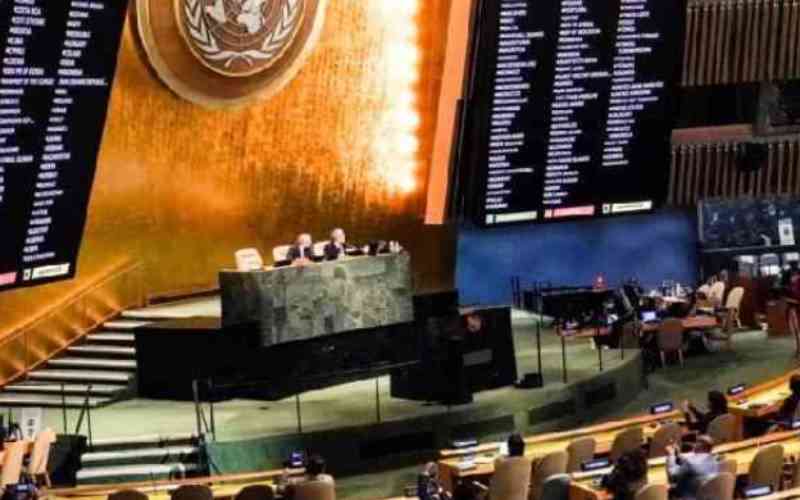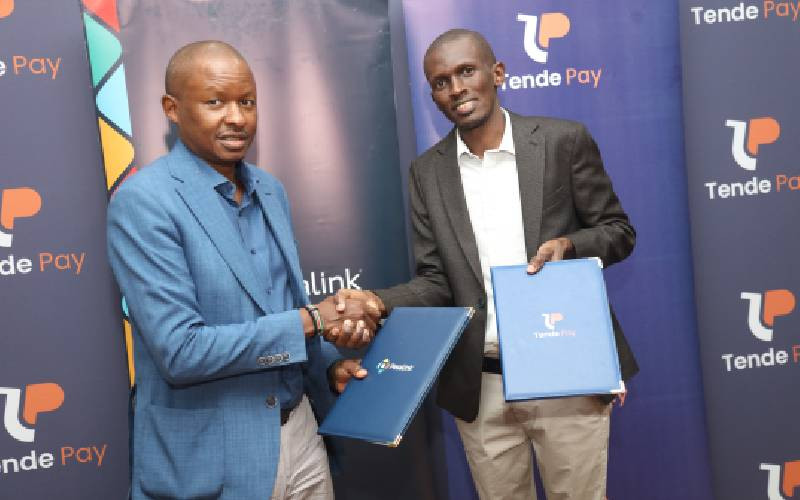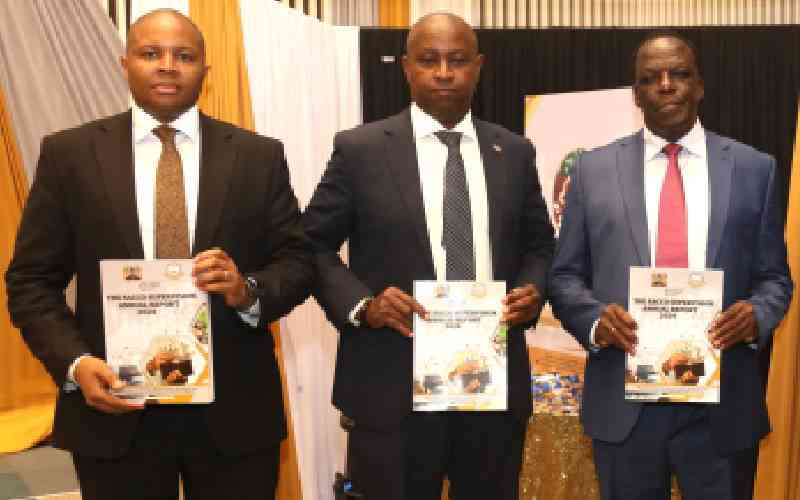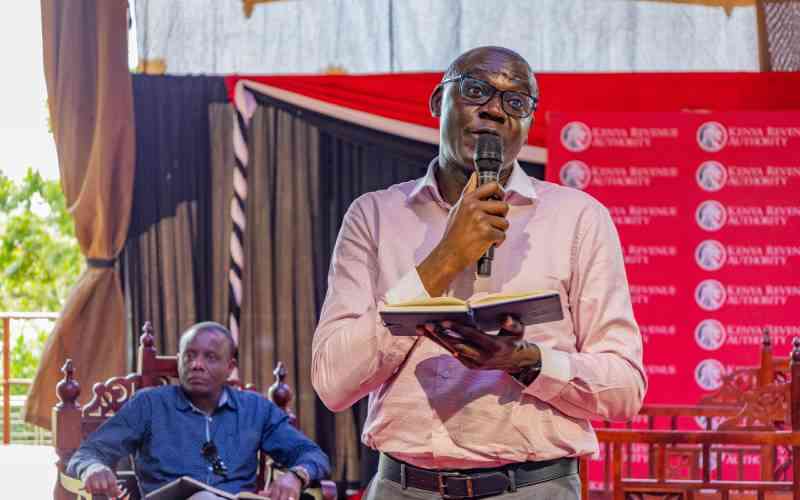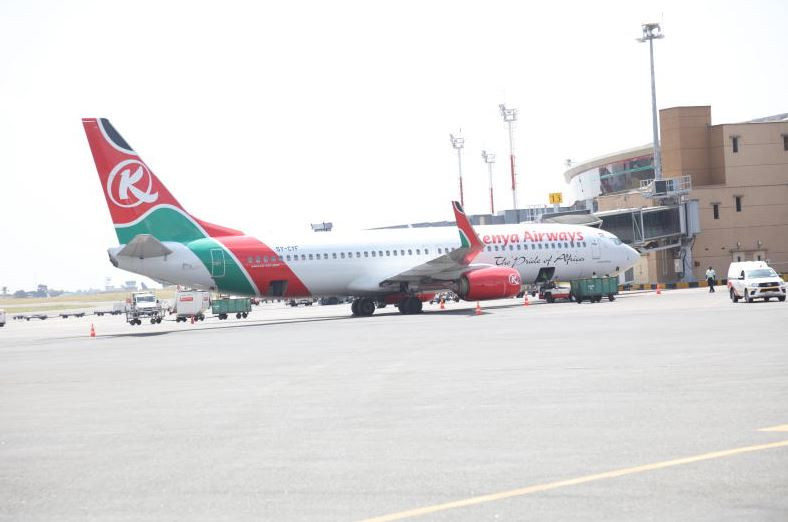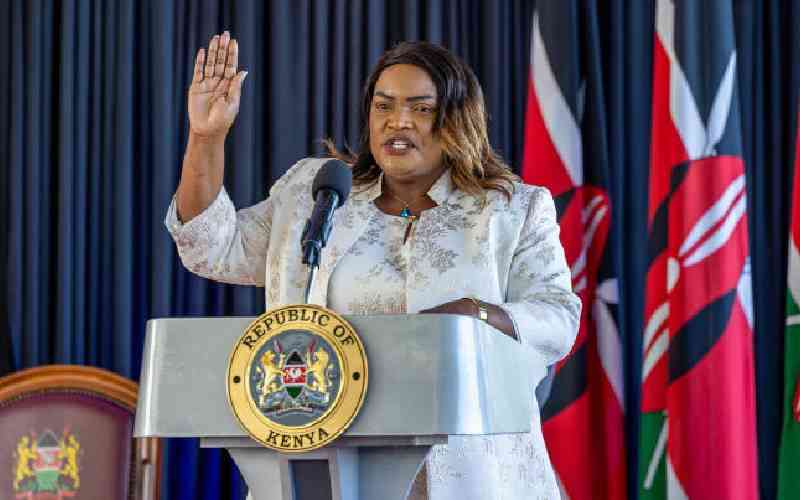
Public Service Principal Secretary Jane Imbunya is on the spot over a proposal to have a new fund for compensating civil servant’s injury and accident claims outside the legally mandated Social Health Authority (SHA).
According to critics, the move risks undermining regulatory oversight, weakening safeguards against misuse of public funds, and setting a dangerous precedent of bypassing established structures.
In a letter dated July 17, 2025, addressed to Treasury Principal Secretary Chris Kiptoo, Ms Imbunya proposed that money be allocated to the State Department for Public Service to settle long-pending injury and accident claims for civil servants.
She argued that this would provide relief to civil servants and their families still awaiting compensation under the Work Injury Benefits Act (WIBA), Group Personal Accident (GPA), and Last Expense claims.
“As per the WIBA Act 2007, which allows a self-insurance model of claims arising from injuries/deaths for civil servants, the compensation be undertaken by the Ministry responsible for Public Service and the required resources be provided,” Imbunya wrote.
She further requested that the Social Health Authority (SHA) furnish her office with a comprehensive report on claims already processed, pending, or rejected for the financial years 2021/22, 2022/23, and 2023/24.
However, the proposal has drawn reactions from various quarters.
According to Justin Muturi, who is the former public service Cabinet Secretary, the initiative risked fragmenting accountability.
“Setting up a parallel process for employee benefits not only fragments accountability and delays justice for members and their families but also undermines efficiency,” said Muturi.
He further stated that without actuarial oversight and regulatory control, the proposal exposes public funds to potential fraud and mismanagement.
Imbunya rejected claims that her proposal amounted to running an illegal insurance scheme.
She stated that her letter to Treasury was only a letter of intent and not a request to transfer funds to her State Department.
“There is something called the horse’s mouth, and I am it. Writing to Treasury is a normal government procedure. Nothing illegal about it,” she said.
She stated that her office is the custodian of civil servants’ data and has a duty to advocate for compensation.
“We are the ones who know our servants, those injured, those who died. Whoever pays them gets the data from us,” she said.
Stay informed. Subscribe to our newsletter
The PS maintained that no funds had been allocated to her ministry.
“That money has not been given to me. It is not even in my vote book. Even if I were given that money, I do not have the mandate to pay. I would only facilitate the person paying that money by giving them verified data,” she said.
The PS stated that she had sought legal guidance before taking further steps.
“I have written seeking the advisory of the Attorney General of the Republic of Kenya on how to handle the matter. We will await that advice before any further moves,” she said.
Makueni Senator Dan Maanzo also faulted the initiative.
“However good as it sounds, premiums for medical, life, WIBA, GPA, and last expense covers have already been remitted to SHA. Why is the government creating a parallel initiative when only SHA has the legal mandate, capacity, and data to manage these benefits?” said Maanzo.
Kitutu Chache South MP Anthony Kibagendi termed the proposal as a return to illegality.
“Creating a ministry-based fund is a blatant abuse of public funds. We will reject it,” he said.
In 2012, the government established the GPA Operations Unit within the National Treasury to manage claims and premium collections.
However, the unit was disbanded in 2017 after amendments to the Insurance Act criminalized insurance-related activities by unlicensed entities, imposing penalties of up to Shs.10 million or five years in prison.
Following the reforms, a Cabinet memorandum (CAB 17/60) directed that the defunt National Health Insurance Fund (NHIF), now SHA take over responsibility for WIBA, GPA, Group Life, and Last Expense benefits, supported by a gazetted exemption under the Insurance Act.
Section 7 of the WIBA Act requires employers to obtain insurance policies with approved insurers for liabilities to their employees.
The Insurance Act criminalizes unlicensed insurance operations, defining both claims settlement and premium handling as insurance functions.
Meanwhile, the Public Service Superannuation Scheme (PSSS) Act requires the government to maintain life and disability policies, but not to self-administer them.
This framework, critics argue, makes the creation of a parallel internal fund risky and potentially unlawful.
Imbunya’s proposal came against the backdrop of growing frustrations over delayed claim settlements.
In a July 1, 2025 letter to SHA CEO Mercy Mwangangi, Treasury PS Kiptoo noted the government’s commitment to resolving pending obligations, which he acknowledged stood at Sh6.55 billion.
“The outstanding premiums for the 2020/21, 2022/23, and 2023/24 periods have negatively impacted timely claims processing, directly affecting thousands of families awaiting compensation,” Kiptoo wrote.
He noted that the Treasury had already released Sh1.58 billion as part payment and was pursuing additional Exchequer funding to clear verified legacy claims worth Sh3.9 billion.
“The initiative reflects our shared commitment to safeguarding the wellbeing of public servants and their families,” he noted.
